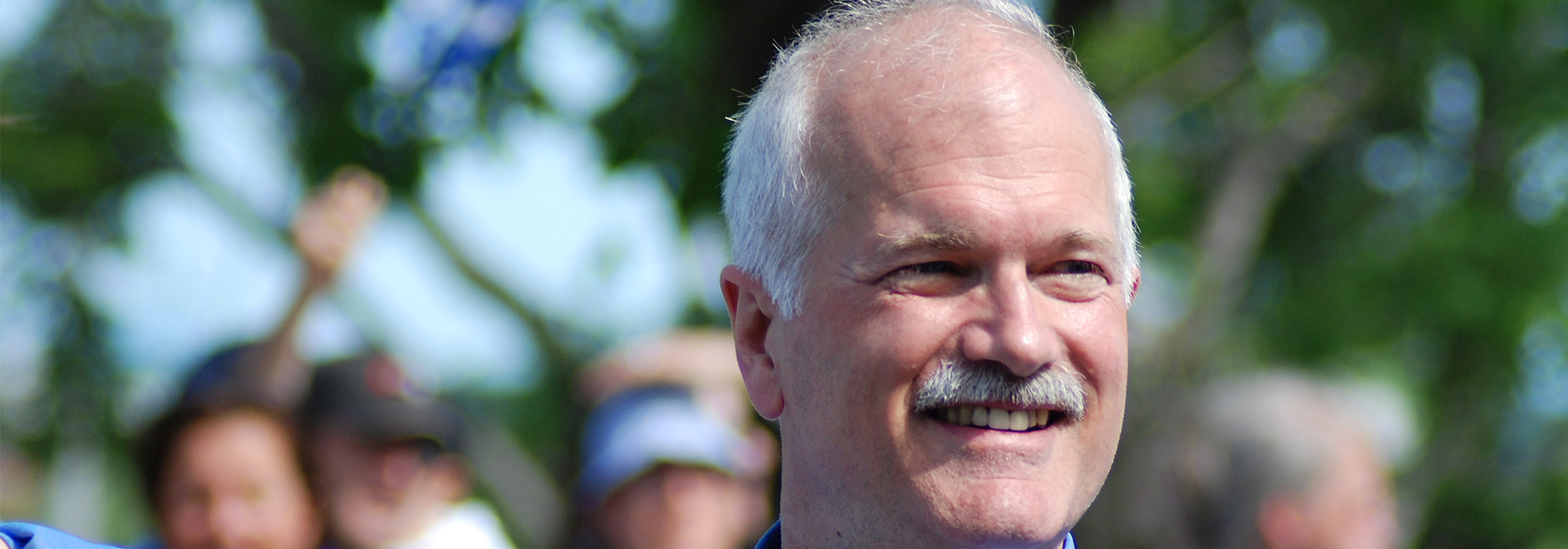
It wasn’t that hard to know Jack Layton. He lived a very public life, at the end of which he drew on private reserves of grace and courage. As he told our Robin Sears: “I’m a fighter, to the end.”
Robin’s lovely appreciation of Jack leads our cover package on the new normal in Ottawa — majority government. It’s a very different game than the one we’ve become too used to, with three successive minority Houses and an increasingly dysfunctional Parliament.
That Layton is no longer with us, except in spirit, is a poignant new fact of our political life.
For me, Layton was a contemporary. We came from the same place and time, English-speaking Montreal in the 1960s. We never met then, and our lives followed very divergent paths in different cities.
But catching up with him decades later, after he’d become leader of the NDP, and having a common footprint from our youth, made it easy to talk to him.
There was the time in late 2009 that the two of us and Sheila Fraser, then the auditor-general, fell into the sort of conversation that only occurs among English-speaking Quebecers. Sheila was a farmer’s daughter from Huntingdon, Quebec, whose dad, Ken Fraser, served in the Quebec legislature under Robert Bourassa. She went to McGill University, as Layton did, while my college years in the late 1960s were spent in the student newsroom of Loyola College, which later became part of Concordia University. It was a time of long hair and ferment on campus, of student manifestos and sit-ins in the president’s office, and the like.
The three of us were standing around chatting at Zoe’s bar at the Chateau Laurier, and because we had a common DNA, the conversation sounded like a class reunion.
Another time after we had put Layton and the other leaders on the cover of this magazine in 2009, I ran into him going into the CBC in Ottawa. “My mother,” he said, “liked the cover.” Doris Steeves was a figure of enduring importance to him, to the very end of his life. Equally important was his father, Bob Layton, a cabinet minister and later caucus chair in the Mulroney government.
I can’t say I knew Bob Layton well when I was working in the Prime Minister’s Office, but the fact that I knew him at all later opened doors with Jack. Simply put, his father was his hero, and he never referred to him as anything other than “Dad.”
The last time we had a good conversation was in an interview in the spring of 2010 after he’d announced his original diagnosis with prostate cancer, which had also stricken his father and ultimately claimed his life. Jack talked of the diagnosis, his determination to beat it, and how going to the gym every day made him stronger for the fight ahead.
When the interview was done and the recorder was turned off, we chatted about the new girls in our lives, my daughter Zara and his then one-year-old granddaughter Beatrice.
His face simply lit up with joy. And it was then that I understood something about him that wasn’t always apparent when he was on camera. He was absolutely authentic.
As for his legacy, it should be obvious. In electoral terms, he took the NDP from fourth place to second place, from a party of the margins to a party of the mainstream, from the fringes of Canadian public policy to a government-in-waiting.
The 103 NDP MPs are the largest Official Opposition since 1980, and the 59 Quebec members, all of whom owe their seats to Jack, constitute a breakthrough of historic proportions. All his successors as NDP leader will be measured against this standard.
Along the way, he put the Bloc Québécois out of business. The Bloc’s meltdown also resulted in serious collateral damage to its sister party, the Parti Québécois, which has been in free-fall in the polls ever since.
This is Layton’s great service to Canada — he blocked the Bloc, with a lot of help from voters, who liked his positive message, “Travaillons ensemble,” as well as his compelling personal narrative of le bon Jack, the good guy.
He introduced a new tone of civility into the proceedings of the House, in the one short session he served as Opposition Leader. He was also more interested in winning outright than in the moral victories that have been an NDP trademark. He transformed a party of losers into one of winners.
For these reasons and for others, he touched Canadians as few leaders ever have.
Was he entitled to a state funeral? Absolutely not! Did he deserve one? Canadians expressed their own answer to that. This is very much to the credit of the Prime Minister who, on learning of Layton’s death, immediately got on the phone to Olivia Chow to offer a laying-in-state and a state funeral. It showed a great sense of occasion, as well as a generosity of spirit and an understanding of the prime minister’s role in bringing Canadians together, not just his job of running the country.
One did not have to share Layton’s politics to admire his public service, or acknowledge his growth as a leader. He was a rassembleur, who brought people together. All in all, he was a great Canadian.
Photo: meunierd / Shutterstock









